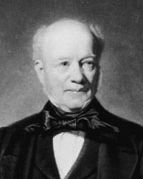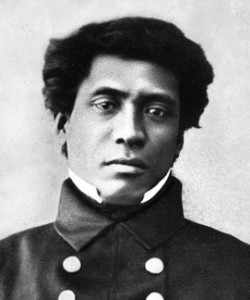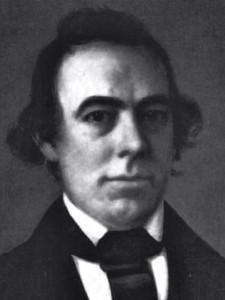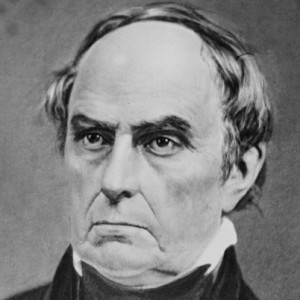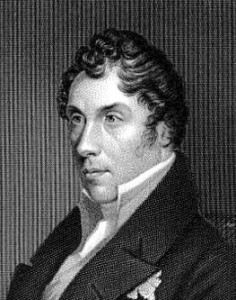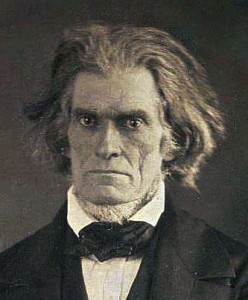On this momentous day of Hawaiian independence since November 28, 1843, the Hawaiian Kingdom filed a Response to the State of Hawai‘i’s Motion to Dismiss the Amended Complaint in the federal court in Honolulu shifting focus to the Royal Commission of Inquiry and its investigations of war criminals. The Royal Commission of Inquiry provides war criminal reports documenting evidence of perpetrators committing certain war crimes so that they can be prosecuted. There is no statute of limitation for war crimes.
When the federal court proceeding was initiated by a Complaint filed on May 21, 2021, and followed by the filing of an Amended Complaint on August 11, 2021, the Hawaiian Kingdom’s stated purpose was to have the Court put a stop to the unlawful imposition of the United States constitution, Federal and State of Hawai‘i statutes, County ordinances, common law, administrative law, and the maintenance of the U.S. military installations across the territory of the Hawaiian Kingdom. This imposition of American laws is a violation of the laws of occupation and constitutes the war crime of usurpation of sovereignty.
Here follows word for word the Hawaiian Kingdom’s Response to the State of Hawai‘i’s Motion to Dismiss the Amended Complaint:
Today marks the 179th anniversary Great Britain and France jointly recognized the Hawaiian Kingdom as a sovereign and independent State on November 28, 1843, at the Court of London. The United States followed on July 6, 1844. Since January 17, 1893, the Hawaiian Kingdom came under belligerent occupation after Queen Lili‘uokalani conditionally surrendered by “yield[ing] to the superior force of the United States.”
As a subject of international law, the Hawaiian State would continue to exist despite its government being unlawfully overthrown by the United States on January 17, 1893. President Cleveland entered into a treaty, by exchange of notes, with Queen Lili‘uokalani on December 18, 1893, whereby the President committed to restoring the Queen as the Executive Monarch, and, thereafter, the Queen committed to granting a full pardon to the insurgents. Political wrangling in the Congress, however, prevented President Cleveland from carrying out his obligations under the executive agreement. Five years later, the United States Congress enacted a joint resolution for the purported annexation of the Hawaiian Islands that was signed into law on July 7, 1898, by President William McKinley.
Professor Wright, a renowned American political scientist, states that “international law distinguishes between a government and the state it governs.” And Judge Crawford of the International Court of Justice clearly explains that “[b]elligerent occupation does not affect the continuity of the State, even where there exists no government claiming to represent the occupied State.” Crawford’s conclusion is based on the “presumption that the State continues to exist, with its rights and obligations … despite a period in which there is…no effective government (emphasis added).” Applying this principle to the Second Gulf War, Crawford explains, the
occupation of Iraq in 2003 illustrated the difference between ‘government’ and ‘State’; when Members of the Security Council, after adopting SC res 1511, 16 October 2003, called for the rapid “restoration of Iraq’s sovereignty”, they did not imply that Iraq had ceased to exist as a State but that normal governmental arrangements should be restored.
When the Hawaiian Kingdom initiated these sui generis proceedings on May 20, 2021, it sought to arrest the commission of the war crime of usurpation of sovereignty by having the Court “[e]njoin Defendants from implementing or enforcing all laws of the Defendants UNITED STATES OF AMERICA and the STATE OF HAWAI‘I AND ITS COUNTIES, to include the United States constitution, State of Hawai‘i constitution, Federal and State of Hawai‘i statutes, County ordinances, common law, case law, administrative law, and the maintenance of Defendant UNITED STATES OF AMERICA’s military installations across the territory of the HAWAIIAN KINGDOM, to include its territorial sea.” These proceedings have now gone on for sixteen months and the war crime of usurpation of sovereignty is still being committed with impunity.
The basis of the complaint was the presumption that the Hawaiian Kingdom as a State continues to exist despite its government being militarily overthrown by the United States on January 17, 1893. The Hawaiian Kingdom as a State is a juridical fact, which was acknowledged by the Permanent Court of Arbitration in Larsen v. Hawaiian Kingdom in 1999.
When these proceedings were initiated, the Hawaiian Kingdom, however, understood that it could not get relief until the Court transforms itself from an Article III Court into an Article II Occupation Court because it is situated in the territory of the Hawaiian Kingdom and not the United States. In its Amended Complaint, the Hawaiian Kingdom addressed this under the heading “Jurisdiction and Venue:”
While this court is operating within the territory of the HAWAIIAN KINGDOM and not within the territory of Defendant UNITED STATES OF AMERICA, its jurisdiction is found as a de facto Article II Court. According to Professor Bederman:
What, then, is distinctive about a court established under Article II of the Constitution? First, executive tribunals are established without an act of Congress or any other form of legislative concurrence. Congressional intent concerning the status of a presidential court is irrelevant because no congressional approval is needed. The fact that the President alone can create an executive court places it outside the scope of Article III of the Constitution, which demands that Congress shall establish courts inferior to the Supreme Court. Second, the executive courts are created pursuant only to the power and authority granted to the President in Article II of the Constitution. In practice, the only presidential power that would call for the creation of a court is that arising from his responsibility as Commander in Chief of the armed services and his subsequent war-making authority.
The authority for this Court to assume jurisdiction as a de facto Article II Court is fully elucidated in the Amicus Curiae brief previously lodged in these proceedings by virtue of the Motion for Leave to File Amicus Curiae Brief on July 30, 2021 [ECF 45] by the International Association of Democratic Lawyers (IADL), the National Lawyers Guild (NLG), and the Water Protector Legal Collective (WPLC). The Amicus brief is instructional for the Court to transition to a de facto Article II Court.
An Article II Court was established in Germany after hostilities ceased in 1945 during the Second World War. After the surrender, western Germany came under belligerent occupation by the United States, France and Great Britain. The military occupation officially came to an end on May 5, 1955, with the entry into force of peace treaties called the Bonn Conventions between the Federal Republic of Germany and the three Occupying States. During the occupation, these Article II Courts had jurisdiction “over all persons in the occupied territory,” except for Allied armed forces, their dependents, and civilian officials, for “[a]ll offenses against the laws and usages of war[,] […] [a]ll offenses under any proclamation, law, ordinance, notice or order issued by or under the authority of the Military Government or of the Allied Forces, [and] [a]ll offenses under the laws of the occupied territory or any part thereof.”
Like the Article II Court in Germany, this Court has Jurisdiction as a de facto Article II Court because this action arises under international humanitarian law—law of armed conflict, which include the 1907 Hague Convention, IV (1907 Hague Regulations), the 1907 Hague Convention, V, the 1949 Geneva Convention, IV (1949 Fourth Geneva Convention), and Hawaiian Kingdom law. Article 43 of the 1907 Hague Regulations states:
The authority of the legitimate power having in fact passed into the hands of the occupant, the latter shall take all the measures in his power to restore, and ensure, as far as possible, public order and safety, while respecting, unless absolutely prevented, the laws in force in the country.
The Court is authorized to award the requested declaratory and injunctive relief as a de facto Article II Court because it is situated within the territory of the HAWAIIAN KINGDOM that has been under a prolonged belligerent occupation by the United States of America since January 17, 1893.
Venue is proper because the events giving rise to this claim occurred in this District, and the Defendants are being sued in their official capacities.
When the Amici filed their amicus curiae brief in support of the Hawaiian Kingdom’s Amended Complaint on October 6, 2021, they sought to assist the Court in the understanding as to why it must transform into an Article II Occupation Court given the legal and factual situation of the Hawaiian Kingdom. The Amici stated:
Under the concept of void ab initio, there are structures that have no legal effect from inception. The United States occupation of Hawai‘i began with unclean hands, and this can only be remedied by a clean slate and a new beginning. Recognition of the prolonged occupation of the Hawaiian Kingdom by the United States through Declaratory Judgment is not only a redressable claim, it is long overdue and would only be consistent with what is already known to the international community and clear under international law. Additionally, granting the Hawaiian Kingdom injunctive relief would acknowledge the Kingdom’s continuous sovereignty, mitigate the United States’ liability for its war crimes against the Hawaiian people, and apply local law as required of an occupying power by the international law of war. Acknowledging extraterritoriality and occupation would have the practical effect of applying the laws of the Hawaiian Kingdom but as was the case with prior occupation courts, this would not nullify any prior decisions of any of the courts currently operating in Hawai‘i, so long as they are not inconsistent with local law.
As an Article III Court, the Court cannot claim to have jurisdiction within the territory of the Hawaiian Kingdom unless it can provide rebuttable evidence that the Hawaiian Kingdom as a State was extinguished under international law. As Professor Craven stated, “[i]f one were to speak about a presumption of continuity, one would suppose that an obligation would lie upon the party opposing that continuity to establish the facts substantiating its rebuttal. The continuity of the Hawaiian Kingdom, in other words, may be refuted only by reference to a valid demonstration of legal title, or sovereignty, on the part of the United States.”
Without proffering any “reference to a valid demonstration of legal title, or sovereignty, on the part of the United States,” this Court is precluded from asserting jurisdiction as an Article III Court when it is situated within the territory of the Hawaiian Kingdom and any judgment it makes is void. A judgment is void “if the court that rendered judgment lacked jurisdiction of the subject-matter, or of the parties, or acted in a manner inconsistent with due process.” According to Justice Story, “no sovereignty can extend its process beyond its territorial limits, to subject either persons or property to its judicial decisions. Every exertion of authority beyond this limit is a mere nullity.” In Pennoyer v. Neff, the Supreme Court reiterated Justice Story’s views on territorial jurisdiction. The Court stated:
[N]o State can exercise direct jurisdiction and authority over persons or property without its territory (citation omitted). The several States are of equal dignity and authority, and the independence of one implies the exclusion of power from all others. And so it is laid down by jurists as an elementary principle that the laws of one State have no operation outside of its territory except so far as is allowed by comity, and that no tribunal established by it can extend its process beyond that territory so as to subject either persons or property to its decisions.
Since these proceedings began, neither the Court nor the Defendants provided any “reference to a valid demonstration of legal title, or sovereignty, on the part of the United States,” and, therefore, the presumption of the Hawaiian State remains. Their arguments, to include the arguments made in the instant motion to dismiss, relies on “the United States constitution, State of Hawai‘i constitution, Federal and State of Hawai‘i statutes, County ordinances, common law, case law, [and] administrative law,” which is the war crime of usurpation of sovereignty. The Amended Complaint clearly states:
Municipal laws of the Defendant UNITED STATES OF AMERICA being imposed in the HAWAIIAN KINGDOM constitute a violation of the law of occupation, which, according to Professor Schabas, is the war crime of usurpation of sovereignty. The actus reus of the offense “would consist of the imposition of legislation or administrative measures by the occupying power that go beyond those required by what is necessary for military purposes of the occupation.” All war crimes committed in the Hawaiian kingdom have a direct nexus and extend from the war crime of usurpation of sovereignty.
According to Professor Schabas, the requisite elements for the following war crimes are:
Elements of the war crime of usurpation of sovereignty during occupation
1. The perpetrator imposed or applied legislative or administrative measures of the occupying power going beyond those required by what is necessary for military purposes of the occupation.
2. The perpetrator was aware that the measures went beyond what was required for military purposes or the protection of fundamental human rights.
3. The conduct took place in the context of and was associated with an occupation resulting from international armed conflict.
4. The perpetrator was aware of factual circumstance that established the existence of the armed conflict and subsequent occupationElements of the war crime of denationalization
1. The perpetrator participated in the imposition or application of legislative or administrative measures of the occupying power directed at the destruction of the national identity and national consciousness of the population.
2. The perpetrator was aware that the measures were directed at the destruction of the national identity and national consciousness of the population.
3. The conduct took place in the context of and was associated with an occupation resulting from international armed conflict.
4. The perpetrator was aware of factual circumstance that established the existence of the armed conflict and subsequent occupation.Elements of the war crime of pillage
1. The perpetrator appropriated certain property.
2. The perpetrator intended to deprive the owner of property and to appropriate it for private or personal use.
3. The appropriation was without the consent of the owner.
4. The conduct took place in the context of and was associated with an occupation resulting from international armed conflict.
5. The perpetrator was aware of factual circumstances that established the existence of the armed conflict and subsequent occupation.Elements of the war crime of confiscation or destruction of property
1. The perpetrator confiscated or destroyed property in an occupied territory, be it that belonging to the State or individuals.
2. The confiscation or destruction was not justified by military purposes of the occupation or by the public interest.
3. The perpetrator was aware that the owner of the property was the State or an individual and that the act of confiscation or destruction was not justified by military purposes of the occupation or by the public interest.
4. The conduct took place in the context of and was associated with an occupation resulting from international armed conflict.
5. The perpetrator was aware of factual circumstance that established the existence of the armed conflict and subsequent occupation.Elements of the war crime of deprivation of fair and regular trial
1. The perpetrator deprived one or more persons in an occupied territory of fair and regular trial by denying judicial guarantees recognized under international law, including those of the fourth Geneva Convention and the International Covenant on Civil and Political Rights.
2. The conduct took place in the context of and was associated with an occupation resulting from international armed conflict.
3. The perpetrator was aware of factual circumstance that established the existence of the armed conflict and subsequent occupation.Elements of the war crime of deporting civilians of the occupied territory
1. The perpetrator deported or forcibly transferred, without grounds permitted under international law, one or more persons in the occupied State to another State or location, including the occupying State, or to another location within the occupied territory, by expulsion or coercive acts.
2. Such person or persons were lawfully present in the area from which they were so deported or transferred.
3. The perpetrator was aware of the factual circumstances that established the lawfulness of such presence.
4. The conduct took place in the context of and was associated with an occupation resulting from international armed conflict.
5. The perpetrator was aware of factual circumstances that established the existence of the armed conflict and subsequent occupation.With regard to the last two elements of the aforementioned war crimes, Schabas states:
1. There is no requirement for a legal evaluation by the perpetrator as the existence of an armed conflict as international.
2. In that context there is no requirement for awareness by the perpetrator of the facts that established the character of the conflict as international.
3. There is only a requirement for the awareness of the factual circumstances that established the existence of an armed conflict.The prohibition of war crimes is an “old norm which [has] acquired the character of jus cogens.” According to the International Criminal Tribunal for the Former Yugoslavia (ICTY), international crimes, which include war crimes, are “universally condemned wherever they occur,” because they are “peremptory norms of international law or jus cogens.” Jus cogens norms are peremptory norms that “are nonderogable and enjoy the highest status within international law.” Schabas’ legal opinion is undeniably, and pursuant to The Paquette Habana case, a means for the determination of the rules of international criminal law.
The Duty of the Hawaiian Kingdom as a State to Investigate War Crimes Committed in its Territory
While these proceedings were underway, the United Nations Human Rights Council was made aware of the prolonged occupation of the Hawaiian Kingdom and the commission of war crimes and human rights violations. As stated by the Royal Commission of Inquiry in its War Criminal Report no. 22-0007:
On 7 February 2021, the International Association of Democratic Lawyers (“IADL”), a non-governmental organization of human rights lawyers that has special consultative status with the United Nations Economic and Social Council (“ECOSOC”) and accredited to participate in the Human Rights Council’s sessions as Observers, passed a resolution calling upon the United States to immediately comply with international humanitarian law in its prolonged occupation of the Hawaiian Islands—the Hawaiian Kingdom. In its resolution, the IADL also “supports the Hawaiian Council of Regency, who represented the Hawaiian Kingdom at the Permanent Court of Arbitration, in its efforts to seek resolution in accordance with international law as well as its strategy to have the State of Hawai‘i and its Counties comply with international humanitarian law as the administration of the Occupying State.”
Together with the IADL, the American Association of Jurists—Asociación Americana de Juristas (“AAJ”), who is also a non-governmental organization with consultative status with the United Nations ECOSOC and accredited as an observer in the Human Rights Council’s sessions, sent a joint letter dated 3 March 2022 to member States of the United Nations on the status of the Hawaiian Kingdom and its prolonged occupation by the United States. In its joint letter, the AAJ also “supports the Hawaiian Council of Regency, who represented the Hawaiian Kingdom at the Permanent Court of Arbitration, in its efforts to seek resolution in accordance with international law as well as its strategy to have the State of Hawai‘i and its Counties comply with international humanitarian law as the administration of the Occupying State.”
On 22 March 2022, the author delivered an oral statement, on behalf of the IADL and AAJ, to the United Nations Human Rights Council at its 49th session in Geneva. The oral statement read:
The International Association of Democratic Lawyers and the American Association of Jurists call the attention of the Council to human rights violations in the Hawaiian Islands. My name is Dr. David Keanu Sai, and I am the Minister of Foreign Affairs ad interim for the Hawaiian Kingdom. I also served as lead agent for the Hawaiian Kingdom at the Permanent Court of Arbitration from 1999-2001 where the Court acknowledged the continued existence of my country as a sovereign and independent State.
The Hawaiian Kingdom was invaded by the United States on 16 January 1893, which began its century long occupation to serve its military interests. Currently, there are 118 military sites throughout the islands and the city of Honolulu serves as the headquarters for the Indo-Pacific Combatant Command.
For the past century, the United States has and continues to commit the war crime of usurpation of sovereignty, under customary international law, by imposing its municipal laws over Hawaiian territory, which has denied Hawaiian subjects their right of internal self-determination by prohibiting them to freely access their own laws and administrative policies, which has led to the violations of their human rights, starting with the right to health, education and to choose their political leadership.
The Defendant UNITED STATES OF AMERICA is a member of the United Nations Human Rights Council and did not oppose or object to the statement made by H.E. Dr. David Keanu Sai, Ph.D., and, therefore, acquiesced to the statement by Dr. Sai. Under international law, acquiescence “concerns a consent tacitly conveyed by a State, unilaterally, through silence or inaction, in circumstances such that a response expressing disagreement or objection in relation to the conduct of another State would be called for.” Since the United States “did not do so … thereby must be held to have acquiesced. Qui tacet consentire videtur si loqui dbuisset act potuisset.” Nevertheless, the war crime of usurpation of sovereignty continues to be committed with impunity.
Rule 158 of the International Committee of the Red Cross Study on Customary International Humanitarian Law specifies that “States must investigate war crimes allegedly committed by their nationals or armed forces, or on their territory, and, if appropriate, prosecute the suspects. They must also investigate other war crimes over which they have jurisdiction and, if appropriate, prosecute the suspects.” This “rule that States must investigate war crimes and prosecute the suspects is set forth in numerous military manuals, with respect to grave breaches, but also more broadly with respect to war crimes in general.”
Determined to hold to account individuals who have committed war crimes and human rights violations throughout the territorial jurisdiction of the Hawaiian Kingdom, the Council of Regency, by Proclamation on April 17, 2019, established a Royal Commission of Inquiry (“RCI”) in similar fashion to the United States proposal of establishing a Commission of Inquiry after the First World War “to consider generally the relative culpability of the authors of the war and also the question of their culpability as to the violations of the laws and customs of war committed during its course.”
In accordance with Hawaiian Kingdom administrative precedence in addressing crises by Royal Commissions of Inquiry, the RCI was established by “virtue of the prerogative of the Crown provisionally vested in [the Council of Regency] in accordance with Article 33 of the 1864 Constitution, and to ensure a full and thorough investigation into the violations of international humanitarian law and human rights within the territorial jurisdiction of the Hawaiian Kingdom.” His Excellency, Dr. David Keanu Sai, Ph.D., has been designated as Head of the RCI, and Dr. Federico Lenzerini, Ph.D., as Deputy Head. Pursuant to Article 3—Composition of the Royal Commission, the Head of the RCI has been authorized to seek “recognized experts in various fields.”
The RCI acquired legal opinions from the following experts in international law: on the subject of the continuity of the Hawaiian Kingdom under international law, Professor Matthew Craven from the University of London, SOAS, School of Law; on the subject of the elements of war crimes committed in the Hawaiian Kingdom since 1893, Professor William Schabas, Middlesex University London, School of Law; and on the subject of human rights violations in the Hawaiian Kingdom and the right of self-determination by the Hawaiian citizenry, Professor Federico Lenzerini, University of Siena, Italy, Department of Political and International Studies. These experts, to include the Head of the RCI, are the authors of chapters 1, 2, 3, 4, and 5 of Part II of the Royal Commission’s eBook – The Royal Commission of Inquiry: Investigating War Crimes and Human Rights Violations Committed in the Hawaiian Kingdom.
According to Article 1(2), “[t]he purpose of the Royal Commission shall be to investigate the consequences of the United States’ belligerent occupation, including with regard to international law, humanitarian law and human rights, and the allegations of war crimes committed in that context. The geographical scope and time span of the investigation will be sufficiently broad and be determined by the head of the Royal Commission.”
Article 1(3) provides, “[t]he results of the investigation will be presented to the Council of Regency, the Contracting Powers of the 1907 Hague Convention, IV, respecting the Laws and Customs of War on Land, the Contracting Powers of the 1949 Geneva Convention, IV, relative to the Protection of Civilian Persons in Time of War, the Contracting Powers of the 2002 Rome Statute, the United Nations, the International Committee of the Red Cross, and the National Lawyers Guild in the form of a report.” All 123 countries who are State Parties to the Rome Statute that established the International Criminal Court have the first responsibility and right to prosecute war criminals that enter their territories under the principle of complementarity and universal jurisdiction.
In Restatement (Third) of Foreign Relations Law of the United States, it recognizes that when “determining whether a rule has become international law, substantial weight is accorded to…the writing of scholars.” According to Black’s Law, United States courts have acknowledged that the “various Restatements have been a formidable force in shaping the disciplines of the law covered [and] they represent the fruit of the labor of the best legal minds in the diverse fields of law covered.” The Restatement drew from Article 38(1)(d) of the Statute of the International Court of Justice, which provides that “the teachings of the most highly qualified publicists of the various nations [are] subsidiary means for the determination of rules of [international law].” These “writings include treatises and other writings of authors of standing.” Professors Craven, Schabas, and Lenzerini are “authors of standing” and their legal opinions are “sources” of the rules of international law.
At its website, the RCI recently published the following War Criminal Reports:
War Criminal Report no. 22-0002 finding Derek Kawakami, as Mayor of the County of Kaua‘i, and Arryl Kaneshiro, as Chair of the Kaua‘i County Council, guilty of the war crime of usurpation of sovereignty (November 17, 2022).
War Criminal Report no. 22-0002-1 finding Matthew M. Bracken and Mark L. Bradbury guilty of being accomplices to the war crime of usurpation of sovereignty committed by Mayor Kawakami and Chair Kaneshiro (November 20, 2022).
War Criminal Report no. 22-0003 finding Mitchell Roth, as Mayor of the County of Hawai‘i, and Maile David, as Chairwoman of the Hawai‘i County Council, guilty of the war crime of usurpation of sovereignty (November 17, 2022).
War Criminal Report no. 22-0003-1 finding Elizabeth A. Stance, Mark D. Disher and Dakota K. Frenz guilty of being accomplices to the war crime of usurpation of sovereignty committed by Mayor Roth and Chairwoman David (November 20, 2022).
War Criminal Report no. 22-0004 finding Michael Victorino, as Mayor of the County of Maui, and Alice L. Lee, as Chairwoman of the Maui County Council, guilty of the war crime of usurpation of sovereignty (November 17, 2022).
War Criminal Report no. 22-0004-1 finding Moana M. Lutey, Caleb P. Rowe and Iwalani Mountcastle Gasmen guilty of being accomplices to the war crime of usurpation of sovereignty committed by Mayor Victorino and Chairwoman Lee (November 20, 2022).
War Criminal Report no. 22-0005 finding David Yutake Ige, as Governor of the State of Hawai‘i, Ty Nohara, as Commissioner of Securities of the State of Hawai‘i, and Isaac W. Choy, as Director of the Department of Taxation of the State of Hawai‘i, guilty of the war crime of usurpation of sovereignty (November 18, 2022).
War Criminal Report no. 22-0005-1 finding Holly T. Shikada and Amanda J. Watson guilty of being accomplices to the war crime of usurpation of sovereignty committed by Governor Ige, Commissioner Nohara, and Director Choy (November 20, 2022).
War Criminal Report no. 22-0006 finding Anders G.O. Nervell, as Honorary Consul for Sweden, guilty of the war crime of usurpation of sovereignty (November 18, 2022).
War Criminal Report no. 22-0006-1 finding Scott I. Batterman guilty of being an accomplice to the war crime of usurpation of sovereignty committed by Swedish Honorary Consul Nervell (November 20, 2022).
War Criminal Report no. 22-0007 finding Joseph Robinette Biden Jr., as President of the United States, Kamala Harris, as Vice-President of the United States, Admiral John Aquilino, as Commander of U.S. Indo-Pacific Command, Charles P. Rettig, as Commissioner U.S. Internal Revenue Service, Charles E. Schumer, as U.S. Senate Majority Leader, and Nancy Pelosi, as Speaker of the U.S. House of Representatives, guilty of the war crime of usurpation of sovereignty (November 18, 2022).
War Criminal Report no. 22-0007-1 finding Brian M. Boynton, Anthony J. Coppolino and Michael J. Gerardi guilty of being accomplices to the war crime of usurpation of sovereignty committed by President Biden, Vice-President Harris, Admiral Aquilino, Commissioner Rettig, Senator Schumer, and Representative Pelosi (November 20, 2022).
War Criminal Report no. 22-0008 finding Leslie E. Kobayashi, as United States District Judge, and Rom A. Trader, as United States Magistrate Judge, guilty of the war crimes of usurpation of sovereignty and deprivation of fair and regular trial (November 23, 2022).
The RCI, in its reports, found that the pleadings of the Defendants in this case, to include the instant motion to dismiss, and the orders issued therefrom, have met the constituent elements of usurpation of sovereignty and deprivation of fair and regular trial and mens rea.
The U.S. District Court, for the District of Hawai`i has failed and/or refuses to transform and operate as an Article II Court in defiance of the rule of law as set out in these proceedings by the Hawaiian Kingdom and affirmed in the filing of the Amicus Brief filed by the International Association of Democratic Lawyers, the National Lawyers Guild and the Water Protector Legal Collection. Furthermore, this Court has administered “[m]unicipal laws of the Defendant UNITED STATES OF AMERICA” in addressing all claims for relief by parties to these proceedings, in the territorial jurisdiction of the Hawaiian Kingdom, in complete disregard of international law.
Defendants, all of those seeking relief and dismissal of the Complaint and/or Amended Complaint, have invoked and asserted only “[m]unicipal laws of the Defendant UNITED STATES OF AMERICA” to serve their interest(s) and obtain their relief sought from this Court. In no instance, have any of these Defendants proffered evidence (rebuttable or otherwise) of the extinguishment of the Hawaiian Kingdom, as a State under international law. In fact, to the contrary and extreme detriment of Plaintiff, said defendants have intentionally asserted only “[m]unicipal laws of the Defendant UNITED STATES OF AMERICA” and relied on the Court’s extrajudicial review, consideration and application solely on “[m]unicipal laws of the Defendant UNITED STATES OF AMERICA” to grant the relief sought for said Defendants.
As now documented in the Reports of the RCI, these proceedings have been rendered moot, as the Hawaiian Kingdom is unable to get relief sought in its Complaint/Amended Complaint from the Defendants and this Court, and thereby subjecting Plaintiff, its Council of Regency, its national subjects and its territorial domain to ongoing suffering and damages brought upon by the continuing imposition of “[m]unicipal laws of the Defendant UNITED STATES OF AMERICA.”
Accordingly, as instructed by the Council of Regency, on behalf of Plaintiff Hawaiian Kingdom, I hereby give Notice of Voluntary Dismissal of its Amended Complaint and these proceedings in a manner consistent with Rule 41(a)(1)(A)(i) FRCP.
“MIC DROP”

